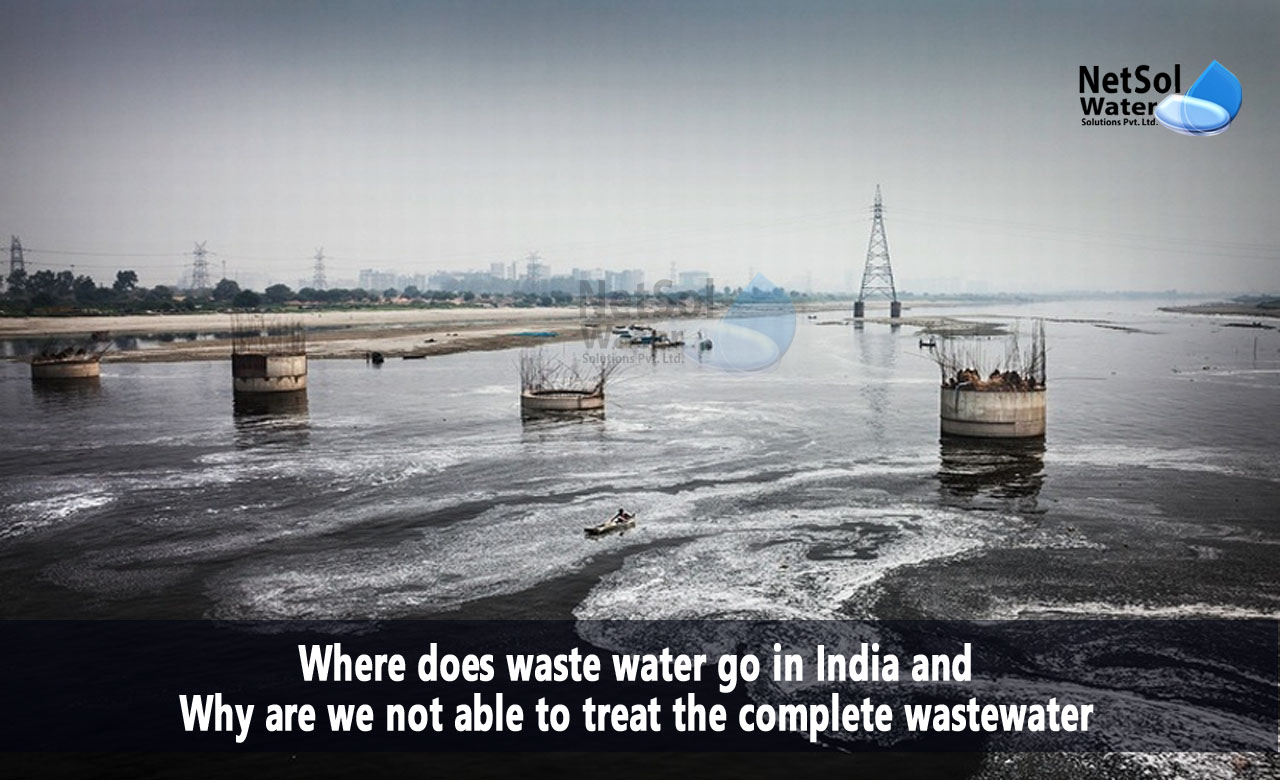Introduction
In India, wastewater management is a significant environmental challenge. The amount of wastewater produced has dramatically increased as a result of increasing urbanization, industrial development, and population growth. This blog will examine the disposal of wastewater in India as well as the obstacles to full wastewater treatment.
Where Does Wastewater Go in India?
1. Domestic Sewage:
· Domestic wastewater typically enters sewage systems in metropolitan areas, which then transfer it to sewage treatment facilities (STPs). Before releasing the water into open bodies of water or using it for non-potable uses, these STPs clean it using a variety of treatment procedures.
· The situation is different in rural areas. There are many homes without access to centralised sewage systems. Domestic effluent is consequently frequently dumped undisturbed into surrounding open sewers, rivers, or agricultural fields.
2. Commercial Sewage:
· In India, a sizable part of wastewater is produced by industries. On-site primary treatment procedures are usually applied to this wastewater, but not all of it is effectively handled.
· Industrial effluent may either be released into the environment with little to no treatment, depending on local laws and the industry's commitment to environmental responsibility.
3. Agricultural Runoff
· In India, agricultural practises greatly contribute to water contamination. Pesticides and fertilisers, combined with extra irrigation water, can contaminate neighbouring water sources and seep into the groundwater.
Challenges in Comprehensive Wastewater Treatment:
1. Infrastructure Deficit
· India has a huge infrastructure gap for treating wastewater. There are many places that lack sewage infrastructure and treatment facilities, especially in rural areas.
· Urban areas frequently have antiquated and overworked sewage treatment infrastructure, which results in subpar treatment and overflows during severe downpours.
2. Financial Restraints
· Infrastructure for wastewater treatment must be developed and maintained with significant financial resources. Municipalities and other government organisations in India frequently struggle to obtain the financing required for infrastructure development and maintenance.
3. Ineffective Treatment Methods
· Many STPs in India use antiquated or ineffective treatment techniques, which results in insufficient wastewater purification. This is especially troubling because rivers are frequently used to dump treated water, potentially contaminating water sources.
4. Industrial Conformity
· It is still difficult to ensure industrial compliance with wastewater treatment regulations. Industries may discharge wastewater that has not been properly treated if there is a lack of enforcement and consequences for non-compliance.
5. Growth in the population and urbanisation
· Existing wastewater treatment facilities are under tremendous strain as a result of urbanisation and rapid population expansion. Cities that are growing find it difficult to meet the demand for wastewater treatment and sanitation services.
6. Agriculture Methods
· A special problem arises from agricultural runoff that contains pesticides and fertilisers. This problem can be lessened by modifying agricultural practises to use less chemicals and by implementing sustainable farming practises.
7. Knowledge and Instruction:
· There is frequently a lack of public understanding and education regarding the significance of wastewater treatment and its effects on the environment. More responsible individual and societal behaviour may result from increased awareness.
Conclusion
Although wastewater management in India is a challenging problem, it is not insurmountable. Comprehensive solutions necessitate a multifaceted strategy that includes infrastructure expenditures, enhanced treatment procedures, tougher regulation enforcement, and instruction on water-use responsibility. India's wastewater problems must be resolved in order to protect the environment, public health, and sustainable development. To guarantee that wastewater is treated successfully and responsibly, it will be necessary for government agencies, businesses, and the general public to work together to address these issues.
Netsol Water is Greater Noida-based leading water & wastewater treatment plant manufacturer. We are industry's most demanding company based on client review and work quality. We are known as best commercial RO plant manufacturers, industrial RO plant manufacturer, sewage treatment plant manufacturer, Water Softener Plant Manufacturers and effluent treatment plant manufacturers. Apart from this 24x7 customer support is our USP. Call on +91-9650608473, or write us at enquiry@netsolwater.com for any support, inquiry or product-purchase related query.



